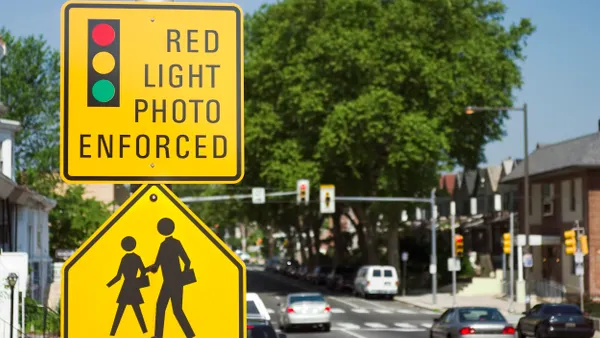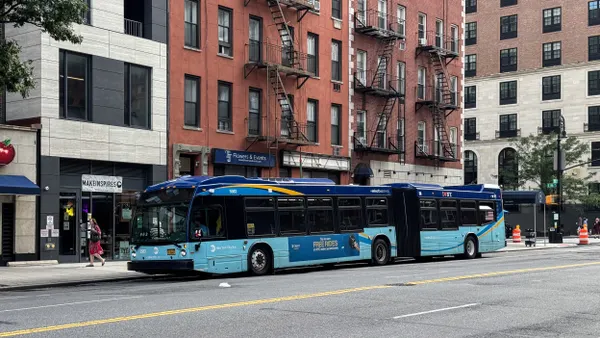Dive Brief:
- Portland, OR has opened up the permit application process for dockless scooter companies interested in participating in the city's four-month pilot program. The Portland Bureau of Transportation (PBOT) will use scooter trip data analysis and surveys to determine if a long-term program is a good fit for the city after the trial period ends.
- The city is capping the total number of scooters allowed on the streets at 2,500. Operators must deploy at least 20% of their fleet in the East Portland section of the city each day.
- Permit applications are due on July 12, and permits are expected to be issued by the end of July.
Dive Insight:
East Portland was its own city until it was annexed decades ago. It has been the most neglected portion of the city in terms of services and infrastructure investment. It was considered a low-income area until its rejuvenation launched and made it a magnet for the young and hip. This year alone PBOT committed to nearly two dozen projects to improve East Portland's streets and make them safer.
Even though developments are quickly pushing into East Portland and rents are on the rise, the area still is far more affordable than the high-income neighborhoods on the west side of the Willamette River. East Portland is the most diverse area in the city, home to a large proportion of the city's African American and immigrant residents.
PBOT's requirement that dockless scooter companies ensure that 20% of their fleets are in an underserved portion of the city each day stands out as unique among cities that have adopted scooter-share programs. It's a way to boost equitable distribution of services and innovations.
Many cities that roll out dockless scooter or bike-share programs do not strictly designate boundaries in which the program can operate. Those that do often launch pilots in high traffic areas where the program will get a lot of use, such as neighborhoods in or near a downtown that serve as commercial or entertainment hubs. These areas often have ample mobility options but the scooters and/or bikes provide another one. Portland's approach to its pilot — launching in a non-traditional area with limited mobility options — could serve as a guide for other cities wishing to add dockless scooters in an equitable way that will be most beneficial to residents.












